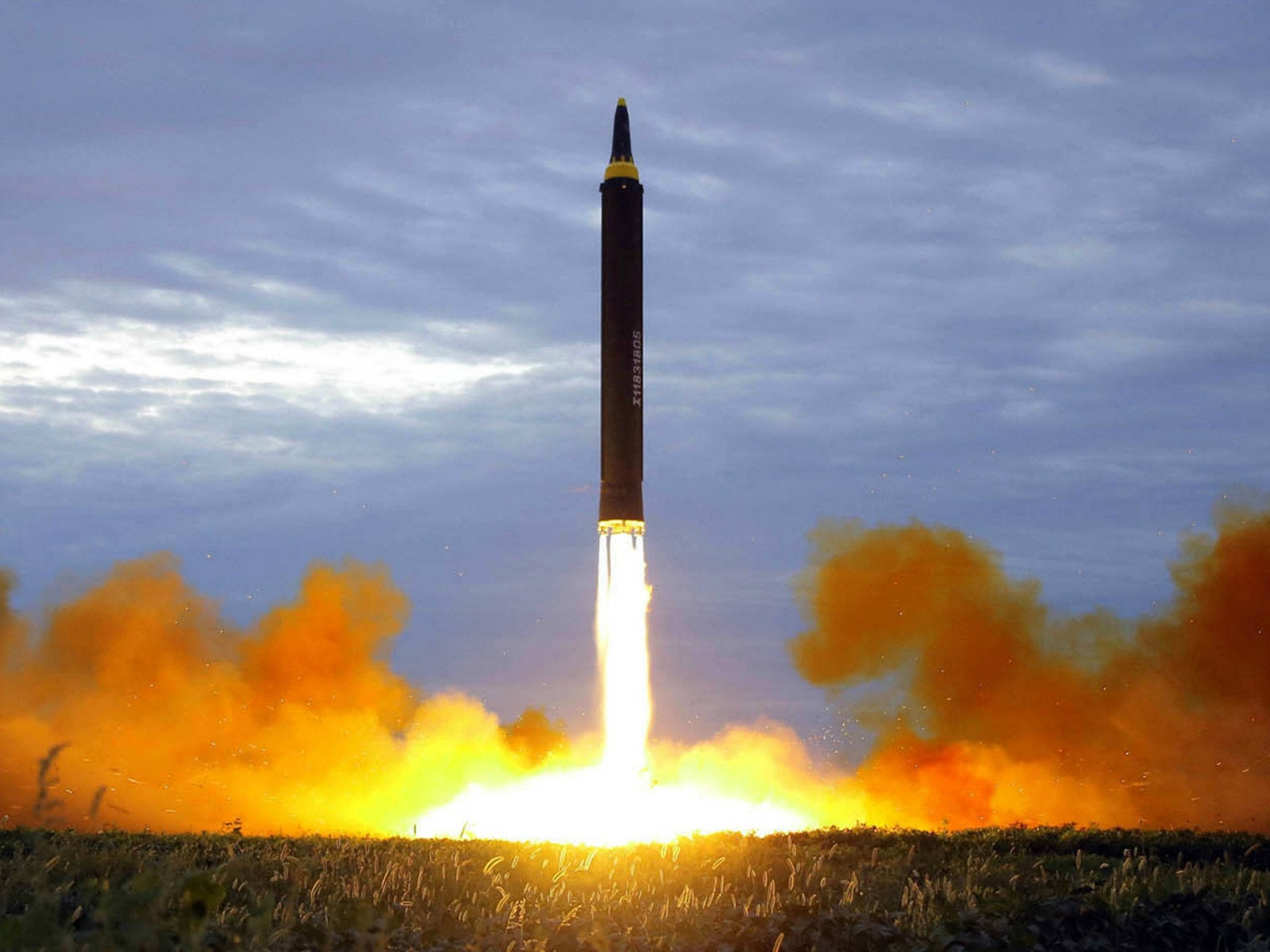North Korea missiles 'now capable of hitting Guam'
Range of latest test 'significant' as it shows Pyongyang's ballistic missiles could reach US Pacific island territory, say experts

Your support helps us to tell the story
From reproductive rights to climate change to Big Tech, The Independent is on the ground when the story is developing. Whether it's investigating the financials of Elon Musk's pro-Trump PAC or producing our latest documentary, 'The A Word', which shines a light on the American women fighting for reproductive rights, we know how important it is to parse out the facts from the messaging.
At such a critical moment in US history, we need reporters on the ground. Your donation allows us to keep sending journalists to speak to both sides of the story.
The Independent is trusted by Americans across the entire political spectrum. And unlike many other quality news outlets, we choose not to lock Americans out of our reporting and analysis with paywalls. We believe quality journalism should be available to everyone, paid for by those who can afford it.
Your support makes all the difference.The ballistic missile launched by North Korea was capable of reaching the US territory of Guam, according to scientists and defence chiefs.
Fired over northern Japan into the Pacific Ocean, it travelled 2,300 miles (3,700 km) in 19 minutes, according to the South Korean military.
Pyongyang has previously threatened to attack Guam, the tiny island which is home to a US military base, 2,110 miles from North Korea.
Experts said the range of the missile, the latest act of aggression against a neighbour and key Western ally, was "significant".
"It flew a distance that is more than enough to reach Guam," said Japanese Defence Minister Itsunori Onodera.
Physicist David Wright, co-director of the Union of Concerned Scientists' global security programme, agreed.
But he pointed out "the payload the missile was carrying is not known".
He said: "The range of this test was significant since North Korea demonstrated that it could reach Guam with this missile, although."
He added the missile "very likely has low enough accuracy" that North Korea would be unable to destroy the US Anderson air base on Guam.
It comes within weeks of a similar ballistic missile launch by the secretive communist state, which its leader Kim Jong-un described as “a meaningful prelude to containing Guam”.
Both are thought to have involved Hwasong-12 intermediate-range missiles fired from Pyongyang's international airport in Sunan.
The North American Aerospace Defence Command and the US Pacific Command said the missile posed no threat to North America or Guam.
The Japanese government said the missile passed over Hokkaido island and the country's military did not try to shoot it down.
The US military also said it had detected an intermediate-range ballistic missile, with Defence Secretary Jim Mattis saying the projectile “put millions of Japanese into duck and cover”.
Japan issued a nationwide alert that urged residents in the country's north to take shelter, and Chief Cabinet Secretary Yoshihide Suga told reporters he condemned the attack in the strongest possible terms.
US Secretary of State Rex Tillerson urged China and Russia to take direct action against North Korea in response to its latest missile launch.
"China and Russia must indicate their intolerance for these reckless missile launches by taking direct actions of their own," he said.
North Korea, which also sparked a global outcry with its most powerful nuclear detonation yet earlier this month, has vowed to continue tests amid what it describes as Western hostility.
Pyongyang has called on the US to withdraw tens of thousands of troops from Japan and South Korea.
Join our commenting forum
Join thought-provoking conversations, follow other Independent readers and see their replies
Comments